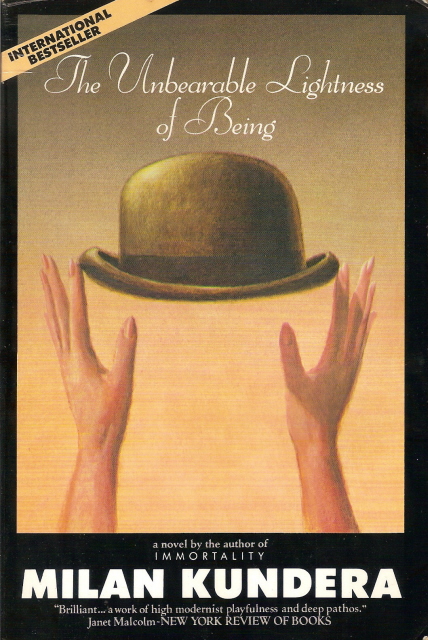When a novel opens with a reference to the existentialist philosophy of Friedrich Nietzsche, there is a portent that reading the book is going to be a wild ride. However, forearmed with the knowledge that the novel was made into a Hollywood movie, the possibility presents itself that the story is not so deep as to be unapproachable.
The temporal context of the book is a period which encompasses the liberalization known as the Prague Spring of 1968–which culminated in the Soviet-led invasion of the then-Czechoslovakia. While there is a narrative arc in the novel, the book is driven less by events than by the sex lives of its four major protagonists. A central theme is an exploration of the extent to which sexual activity can be separated from emotional content. While certain characters achieve a discontinuity between sexual relations and emotional freight better than others, The Unbearable Lightness of Being is suffused with a sense of melancholy derived from the fortuitous circumstances and irrevocable choices of existence.
Granted, life in a time of totalitarian repression cannot be happy, even for fictional characters, and particularly the ones with an intellectual bent, but after 200 pages or so a reader can be excused for feeling tired of all the gloom, and the characters have lost some of the benefit of the doubt that made them sympathetic in the beginning. Sympathy veers toward a family pet, a dog named Karenin, whose tropisms for order, unconditional love, and lack of awareness seem positively merciful.



